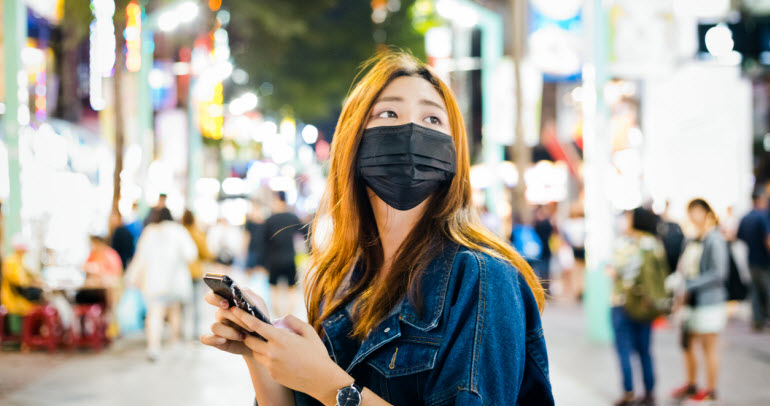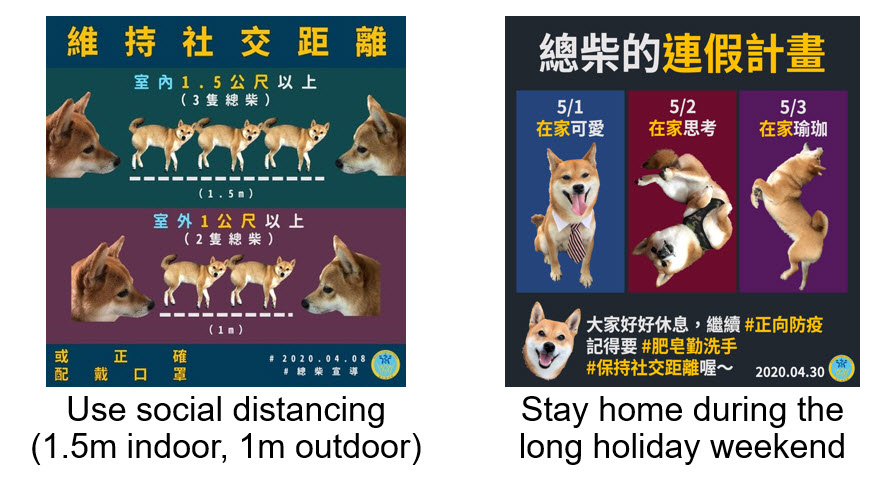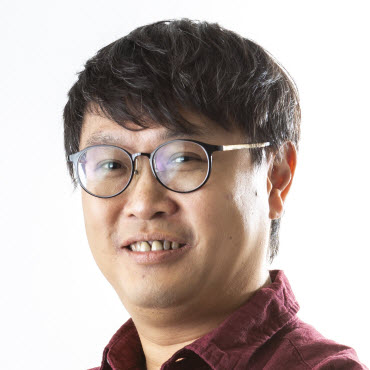
Taiwan. The island country has been praised for its successful fight against the virus. With a population close to 24 million, Taiwan has fewer than 500 confirmed cases of COVID-19 and only 7 deaths as of early May 2020. Offices there have never been closed. Kids go to school as usual. Restaurants are open. What is Taiwan doing differently?
The country’s success is the result of a myriad of factors, which include providing and encouraging the use of face masks, implementing an early travel ban, offering widespread viral and antibody tests, as well as making good use of information technology. As a researcher in our Technology industry group, I particularly wanted to look at what and how technology has been employed by Taiwan in this pandemic. This is what I found.
Using Big Data to Guide the Right Resources
Like residents of many Asian countries, people in Taiwan believe everyone should use face masks—arguably not for protecting the wearer, but for minimizing the risk of a sick person infecting others. With the help of technology, the Taiwan government has made an effort to ensure that everyone in Taiwan has masks.
Audrey Tang, a government minister of Taiwan—and a recent media celebrity in a couple of countries—was considered a genius (reported IQ score of 180) software developer before her service in the government. Under her leadership, the Taiwan government developed a resource planning and distribution system at lighting speed to ration surgical masks.
To get an accurate picture of supply and demand, the system integrates Big Data about inventories for all pharmacies and supply chains in the territory, as well as population statistics and residential location data. The masks are then distributed to the appropriate parts of the country and residents are informed of where and how they can get masks using a mobile app. This system has prevented the chaos caused by mask shortages in places such as Hong Kong, where people queued up in the cold winter nights to buy masks at exorbitant prices. Additionally, Taiwan has rapidly increased its production capacity in factories, making sure the supply end can deliver. While much of the world is experiencing mask shortages, Taiwan has achieved a daily mask production of up to 10 million per day and has distributed them efficiently. Everyone has masks.
Using Artificial Intelligence and Big Data to Track the Disease
The use of Big Data and artificial intelligence (AI) has helped Taiwan effectively track potential COVID-19 cases and quarantined individuals. As individuals in Taiwan are asked to quarantine themselves at home for a certain period, multiple tactics ensure compliance. Taiwan is using mobile phone technology to monitor individuals to make sure they are not leaving home. Additionally, health authorities are using various databases such as travel records, transit records, credit card transactions and medical visit records to monitor individuals’ activities during quarantine.
South Korea is another example of how similar tracking technologies have helped reverse a dire situation. After the Daegu church incident, South Korea took a strong approach to contact tracing, which is tracked via people’s mobile phones.
There is discussion worldwide on the privacy concerns associated with contact tracing—but original equipment manufacturers (OEMs) that are enabling this tech are working on ways to keep consumer privacy intact as the app is downloaded and people begin to use it. According to Apple and Google, who are collaborating on a mobile tool that allows contact tracing, the data are rolled up at the geographic level to track the virus, and that it is not used on an individual level. While effective, this use of technology warrants a serious debate about the value of individual privacy and public health safety.
Perhaps a less intrusive method to tamp down the spread of the disease comes from Taiwan AI Labs, a privately funded research organization. In partnership with the government, Taiwan AI Labs developed and launched an app that allows users to see where crowds of people are present. In dense urban centers such as Taipei or Kaohsiung, the app is very useful, as it can warn users before they go to crowded locations where infection risk is higher.
Smart Use of Social Media Can Make a Difference
According to Audrey Tang, one of the first successful tactics of Taiwan’s health authorities is the very fast reaction based on intelligence acquired via social media monitoring. Dr. Li Wenliang, the whistleblower who worked in a hospital in the epicenter of Wuhan, alerted a WeChat community about seven “alleged SARS infection cases” on December 30, 2019 (SARS was another coronavirus that erupted in China in 2003). Taiwan intercepted this information circulated via social media, reacted quickly and began health inspections for direct-flight passengers from Wuhan to Taiwan. That was as early as January 1, 2020.
Taiwan also uses social media as the primary tool to communicate information, educate the public and influence the social mood. Tang emphasized that during these stressful times, Taiwan has been employing humor to fight rumor. For instance, when a rumor about toilet paper shortage emerged, a government official responded lightheartedly in a speech to the public, “With one ass, how much toilet paper do you need?” Health guidelines were also provided lightheartedly. For example, publicity about the importance of social distancing was created using a dog named Zongchai as a mascot. Information about public health is taught, or advised, to people via Zongchai in a friendly and digestible way that has been circulated heavily on social media channels. As a result, Taiwan residents have more readily accepted, internalized and behaved according to government health guidelines compared with residents of other nations, according to Tang.

It Is About How Technology Is Used
All the technologies I have discussed already exist and are fully established. Nothing new. But Taiwan has demonstrated innovative ways to effectively use Big Data, AI and social media to protect its people. The country has demonstrated how technology can be used with a timely and efficient response to more effectively fight this disease. Taiwan has also set an example of placing equal importance on science and humanities. When they communicate public health information, they care about the art of delivering messages to people who are beings with emotions. It is not just the science of sending data packets from a server to a smartphone.
Escalent’s Capabilities in Market Exploratory Research in APAC
Escalent is a top human behavior and analytics firm with experience in the technology, healthcare, financial services, automotive and consumer and retail markets of Asia-Pacific countries (APAC) including Taiwan. We have recently conducted market exploratory research in Japan, South Korea, Taiwan, Hong Kong, Singapore, Indonesia, Thailand and the Philippines, as well as the two huge markets China and India.
Our US-based research teams include researchers who have decades of experience in Asian research. Combined with our APAC office and on-the-ground teams in Asia, we deliver true and deep insights about APAC markets. From our research with different audiences such as consumers, businesses and developers/OEMs, we have had front-row seats to observe how Asian technology markets can sometimes behave differently from the US or Western Europe.
If you need or want to explore APAC markets, please send us a note. We’re always glad to share our thoughts and answer questions.








